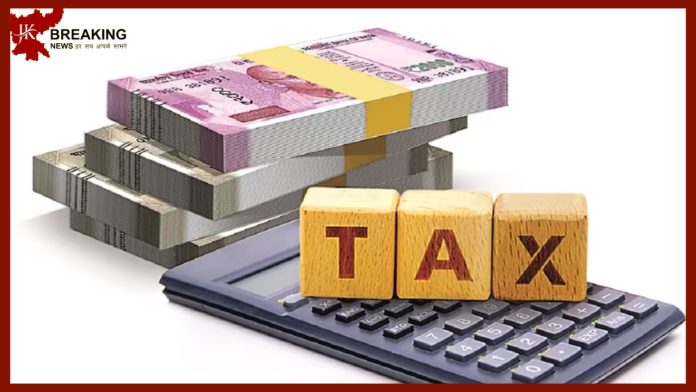Income Tax System Changes from CY: More than 4 months of the current financial year have passed. If you are also planning to save tax then do not delay any longer.
More than 4 months have passed for the financial year 2023-24. If you have not done tax planning for this year till now, then do not delay now. Before doing tax planning, be sure to know the major changes in the income tax system from this financial year. These will help you in tax planning and help you save money.
Changes made due to
The government has made several changes in the budget for the financial year 2023-24 to make the new tax regime attractive. Let’s talk about them first. If you do not choose either the old or new tax regime from this financial year, then the new tax regime will be implemented by default. If you want to stay in the old tax regime with exemptions and deductions, then you have to opt for it.
In the new tax regime, the limit of tax rebate available under section 87A has been increased. If you choose the new system, then no tax will have to be paid on annual income up to Rs 7.27 lakh. In the old tax regime, there is no tax on income up to 5 lakhs.
Basic limit of exemption increased
In the new tax regime, the basic exemption limit has been increased and the tax slab has been changed. Now there is no tax on income from 0 to 3 lakh rupees. And 5 percent on income of Rs 3 to 6 lakh, 10 percent on income of 6 to 9 lakh, 15 percent on income of 9 to 12 lakh, 20 percent on income of 12 to 15 lakh and 30 percent on annual income above 15 lakh. Tax will be applicable.
Salaried person will now get the benefit of standard deduction in the new tax regime. Under this, the taxpayer will get a deduction of Rs 50,000. Those earning Rs 15 lakh or more will get the benefit of Rs 52,500 as standard deduction.
More profit on encashing the leave
For non-government employees, the tax exemption limit on leave encashment has been increased to Rs 25 lakh. Earlier it was only three lakh rupees. This will reduce the tax burden on the employee at the time of retirement or leaving the job.
In the new tax regime, the high surcharge has been reduced from 37 per cent to 25 per cent. These rates will be applicable on income above Rs 5 crore. Reduction in surcharge will reduce the tax burden on high earners.
Changes for mutual fund owners
Long term capital gains benefit and indexation benefit on debt mutual funds have been done away with. From April 1, on redeeming investments made in debt mutual funds, tax will have to be paid according to the tax slab. This rule is applicable to those debt funds whose investment in domestic equity is less than 35 per cent. This will also affect Gold and International Mutual Fund schemes.
The benefit of LTCG will continue to be available on investments made before March 31, 2023. Redeeming after 3 years of investment in this will attract 20% tax with indexation benefit. Short Term Capital Gains Tax (STCG) will be applicable if the holding period is less than 3 years.
Expensive policy will be more expensive
Tax has been imposed on expensive insurance policies from the financial year 2023-24. If the total annual premium of life insurance policy or policies purchased on or after April 1, 2023 is more than Rs 5 lakh, then the amount received on maturity will be taxable. This rule is not applicable to Unit Linked Insurance Plan (ULIP).
Shock to tax savers from new house
The government has given a jolt to those who save capital gains tax by buying a house. Under section 54 and section 54F, tax exemption will be available only on capital gains up to Rs 10 crore. If a person buys a residential property out of profit from capital asset like property or shares, then the tax exemption limit on profit will be Rs 10 crore only. Above this, the capital gain will be taxed.
Double benefit will not be available on home loan
Apart from this, the benefit of double deduction on home loan interest has also been stopped. It was clarified in the budget that if the deduction is claimed under section 24, it will not be considered as part of the cost of purchase of the house. Many people claim a deduction of up to Rs 2 lakh annually on home loan interest under section 24.
On selling the house, deduction was taken under Chapter VI A by showing this interest cost in the cost of purchase. This increases the cost of the property and reduces the capital gain. In this way, deduction was being taken twice on home loan interest.


